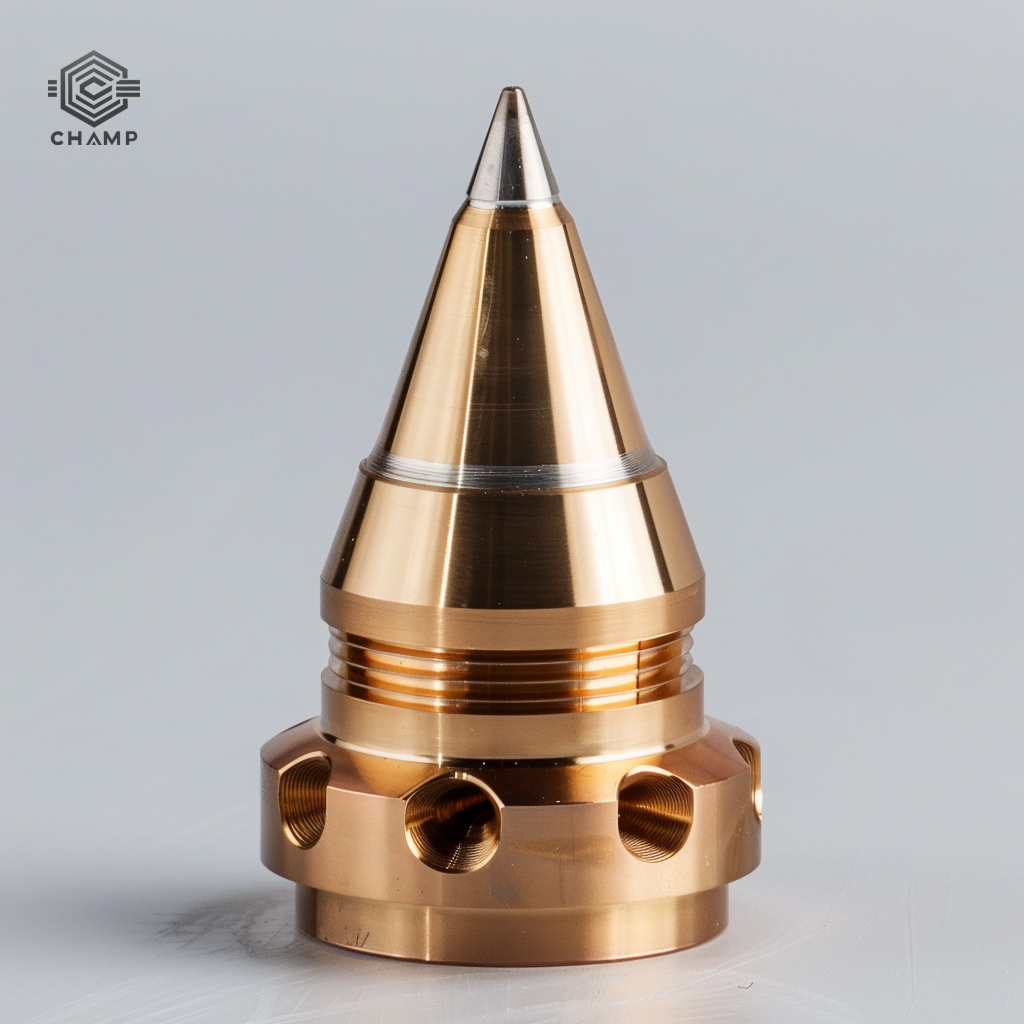Application of Beryllium Copper in Injection Molds
Advantages of Beryllium Copper in Injection Molds
High Thermal Conductivity:
Beryllium copper has a much higher thermal conductivity than conventional mold steels (such as P20 or H13), typically ranging from 105–130 W/(m·K).
Excellent heat conductivity facilitates rapid mold cooling, increases molding efficiency, shortens the molding cycle, and significantly improves production output.
High Hardness and Wear Resistance:
Heat-treated beryllium copper can reach a hardness of HV350–400, offering excellent wear resistance.
This high hardness and wear resistance extend the mold’s service life and reduce the frequency of maintenance or replacement.
Excellent Machinability:
Beryllium copper has good machinability, allowing for precise machining of complex mold shapes and fine features.
The high-quality machined surface enhances the surface finish of final molded products.

Corrosion and Oxidation Resistance:
Beryllium copper shows outstanding resistance to corrosion, especially in humid environments and against corrosive gases generated during injection molding.
Its superior oxidation resistance protects molds during high-temperature injection processes.
Typical Applications in Injection Molds
Mold Inserts:
Beryllium copper is often used for mold inserts, particularly in high-heat-flow areas such as hot runner nozzles, gates, and channels.
Its thermal conductivity ensures rapid cooling in these areas, preventing overheating and molding defects.
Cores and Cavities:
Frequently used for cores and cavities, especially for parts with complex geometries and thin walls.
Its hardness and wear resistance guarantee durability and dimensional accuracy.
Cooling Inserts:
Widely used to manufacture cooling inserts for molds, helping to optimize the cooling channel design and improve cooling efficiency.
Enhanced cooling leads to better dimensional stability and surface finish of molded parts.
Manufacturing Process for Beryllium Copper Mold Components
Mold Design:
Mold design is based on part geometry, size, and production requirements, defining the position and shape of beryllium copper components.
Design should account for the alloy’s high thermal conductivity and hardness to optimize cooling and mold lifespan.
Machining:
CNC machining is used to precisely fabricate beryllium copper parts, including turning, milling, drilling, and grinding.
Coolants are used to reduce heat generation and suppress beryllium dust formation.
Surface Treatment:
Depending on the application, surface treatments like polishing, plating (chrome, nickel), or nitriding may be applied to improve finish and wear resistance.
Treated surfaces are cleaned and inspected to ensure quality and dimensional accuracy.
Usage and Maintenance Guidelines
Usage Guidelines:
During production, control mold temperature and injection parameters to ensure efficient cooling and durability of beryllium copper parts.
Regularly inspect cooling systems and beryllium copper components; clean cooling channels to maintain performance.
Maintenance:
Perform routine maintenance on beryllium copper mold components, inspecting and repairing worn areas to extend mold life.
Apply lubrication and corrosion protection to prevent oxidation and corrosion.
Safety Measures:
Strict safety measures are required during processing and handling to prevent inhalation of beryllium dust or fumes.
Work areas must be well-ventilated, and personnel should wear protective equipment to ensure health and safety.
Real-World Applications
Mobile Phone Casing Molds:
Beryllium copper is used in cavities and cooling systems to achieve rapid cooling and high-gloss surface finishes.
Improved cooling performance reduces cycle times and increases output.
Automotive Interior Molds:
Used in molds for parts like dashboards and center consoles, especially in inserts and cooling components, to ensure high-quality molding of complex parts.
Durability reduces replacement frequency and lowers production costs.
Medical Device Molds:
In molds for syringes, catheters, etc., beryllium copper improves dimensional precision and surface finish.
Its thermal conductivity and corrosion resistance ensure reliability in cleanroom environments.
In summary, beryllium copper offers significant advantages in injection molding applications. Its high thermal conductivity, hardness, and machinability make it an ideal material for demanding molding processes. Adhering to strict safety protocols and regular maintenance is essential to ensure stable, long-term performance of beryllium copper molds.
